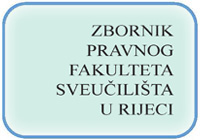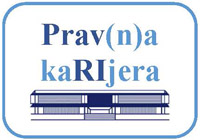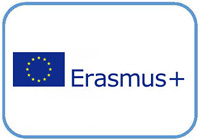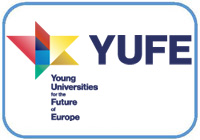Structure of the Study
The Study is organized as an integrated, five-year programme, in the duration of ten semesters. During the Study, students enrol in 28 compulsory courses, while in the fifth year of the Study they enrol only in elective courses, i.e. in five elective courses in the ninth semester. The students enrol in elective courses as early as the third year of Study. The student enrols in compulsory courses: five in the first semester, four in the second semester, four in the third semester, four in the fourth semester, three in the fifth semester, two in the sixth semester, three in the seventh semester, three in the eighth semester. Students enrol the elective courses in the third, fourth and fifth year of Study. Students of senior study years may during the selection of elective courses choose electives from the programme of previous years of Study, provided they did not previously enrol or finished them within the curriculum i.e. the year of Study. The students choose the elective courses based on their interests in accordance with the limited number of students per study group. As one elective course, with the approval of the Vice-Dean for University Study, the student may choose to attend one of the courses from the list of elective courses or from another study programme at the University of Rijeka or another university, if the course contains 3 or more ECTS credits, and if it is determined that the student thereby acquires the knowledge, skills and competences which are acquired upon the completion of this Study.
In the tenth semester, students enrol in the course Legal Research and Final Thesis. In their work for the course Legal Research, students will explore the literature and databases available in the Faculty library, the University library, on the Internet and in other available sources, thoroughly read the literature and present the relevant points in relation to the chosen topic of work in such a way that they include the attitudes and ideas of different authors, and will ultimately form their own point of view; they will collect jurisprudence for a specific time period of relevant domestic and foreign, especially, European judicial authorities; they will critically analyse case law. The work in this course means that the student will also conduct an analysis of the explored matter, which comprises the elaboration of the topic of the final thesis: definition of key terms, pointing to theoretical and practical problems within the research topic and the final thesis, as well as the arguments in favour of individual and sometimes conflicting interpretations. Students will within the course Legal Research showcase the results of research and analysis of case law, and draw conclusions that must result from the text of the thesis.
As part of the same course, student approach the preparation i.e. the writing of the thesis in accordance with the Guidelines for the Students’ Written Papers of the Faculty of Law in Rijeka and his mentor’s instructions. In doing so, students conduct independent professional and scientific research within the topic of the thesis whereby the teacher/mentor continuously provides assistance with his instructions and guidelines. Classes are held in the form of consultations. The student is informed about the course particularly during the consultations in person and/or on the website of the Faculty for the selected course and on the notice board. The student is required to regularly report to the teacher/mentor about the ongoing research. The form of reporting will be agreed in each individual case, and in every case the student should be available by e-mail. Each student must prepare a written final thesis on the given topic which will prove that the student has mastered the topic of the thesis, that he fully understands all the problematic questions from this field, that he is familiar with the legal sources and the crucial literature, that he possesses the skills of written argumentation, as well as the structural and meaningful design of the thesis. By accepting the work as the final thesis, the student has fulfilled the obligations for the course Legal Research and may approach the oral defence of the final thesis - graduation exam. The student is required to defend the final paper orally before the Commission for the Evaluation and Defence of the Final Thesis, which consists of at least three members, one of who is the mentor, and in accordance with the Regulations on Legal Research and Final Thesis. By writing the final thesis and with its defence, the student independently conducts research on the chosen topic demonstrating thereby the achieved level of knowledge and competence for a proper application of methods of professional work and the level of professional maturity in drawing conclusions independently.
The Study is completed upon the submission and defence of the thesis. The student thereby gains a total of 300 ECTS credits.The Study is organized as full-time and part-time. Teaching at the regular Study is performed during thirty weeks in the academic year, i.e. during fifteen weeks per semester. Teaching at the part-time Study includes at least half the number of hours determined for the full-time Study. The time-table for part-time students is adapted to the employed students, and classes for each course will be provided in the afternoon hours.
Lectures provide legal theories and solutions contained in the legislation and in the judicial and administrative practices in a systematic manner. The number of ECTS credits for compulsory courses is determined according to the criteria of the student workload: independent work of the students; number of teaching hours; ratio of compulsory and elective contents of a course; compulsory and elective outlines of particular forms of teaching, content correlation of related legal courses. Exercises make a didactic unit with the corresponding course. Exercises consist of analysing case studies with the aim of directly informing the students about the activity of judicial, administrative, social and other institutions. A seminar is an independent course to which the corresponding number of ECTS is allocated and is not a condition for taking the exam of the same-name course. Seminar classes imply a deeper familiarization of the students to the content of the course of the study programme and are an introduction to the methodology of scientific work. From the first to the fourth year of Study the student is required to enrol in at least one seminar per year. A student enrols in a seminar or research seminar as an independent course from the group of compulsory courses, whereby he may not enrol both in the seminar and in the research seminar from the one and the same course.
The research seminar is conducted in a manner of mentoring and consultation supervision of the individual work of students, which includes independent topic preparation, selection of literature and the means of the final presentation. The credit structure is equivalent to seminar classes. Practical classes (exercises, seminar, and research seminar) have the same ECTS credit structure also when carried out partially outside the Faculty, if this is required by the thematic/methodical unit of the respective course. During the exercises and seminars, a particular focus is placed on the analysis of practical cases, discussions, and individual and teamwork.
Elective courses are provided in the third, fourth and fifth year of Study and may represent a good preparation for choosing legal research. A student from a senior year of Study may as part of the selection of elective courses also choose electives from the programmes of previous years of Study, provided he did not previously enrol or complete them within the curriculum of that year of Study. Foreign language (English; German) is a compulsory content of the study programme and runs continuously through one-semester units I, II, III, IV (exercises: 2 hours).
The student is required to regularly attend classes, actively participate and master the study materials. Homework, presentation of papers, use of the Internet, other media, etc. may be possible forms of participation in the classes. Upon the completion of the course, students have to pass a written, oral or written or oral exam.
The pace of the Study and student obligations are prescribed by the University of Rijeka Regulations on Studies and the Regulations on Studies of the Faculty of Law in Rijeka. Students will achieve the necessary ECTS credits by passing the exams in compulsory and elective courses, by successful completing seminar obligations and successfully conducting legal research, as well as by preparing and defending the thesis”.
















